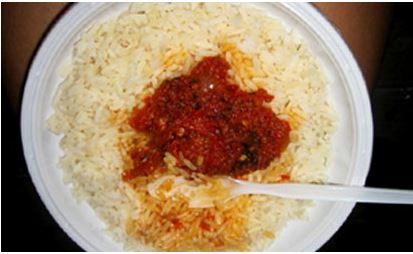
Two medical researchers and nutritionists on Wednesday advised people to minimise their consumption of roadside snacks, saying they pose health dangers to the consumers. Dr Yeside Adesiyun and Dr Ochuko Eruikainre, both Senior Research Officer and nutritionists at the Federal Institute of Industrial Research (FIIRO), Oshodi, Lagos, spoke in interviews with newsmen in Lagos.
Adesiyun said that regular consumption of roadside snacks, also known as street foods, could cause chronic diseases such as obesity, diabetes and heart diseases, because they were always high in sugar.
“Many of these roadside snacks are also linked to inflammatory diseases, cancer and food poisoning. “Roadside snacks, though very important in our food patterns and culture, not just in Nigeria, but all over the world, add to our daily calories and other nutrients which are not safe for consumption. According to her, these roadside snacks add to our daily calories and other nutrients which in most cases are not safe to eat. “Many studies in the past have shown high microbial contaminations in street foods, not just in Lagos, but all over the country.
“It can cause food poisoning which can be as a result of contaminated raw materials or processing equipment. “It could also be as a result of lack of potable water and unhygienic environment as well as poor hygiene of the makers and vendors. “Also, contamination can come from the environment where the foods are exposed to dirty gutter, flies and dust.
“Some of these foods are high in sugar and other refined products such as white flour which have contributed to the rise of chronic diseases,” Adesiyun said. She said that most of the roadside vendors deep fry in an overused oil which become recipes for disaster and lead to heart diseases and diabetes.
“Also, Heterocyclic amines and other dangerous compounds are formed especially, in the case of suya, fish and other protein foods cooked on open flames.
“The risks of these diseases are real and it is easy to see this in the risen cases of chronic diseases in Nigeria. “This is the main reason why consumers need to be educated on nutrition and food safety,” she said. Adesiyun called on the governments to create an enabling environment such as providing potable water, clean environment, electricity for storage and other infrastructure.
“It will be easy for the food regulatory and consumers’ protection agencies to monitor what the vendors are putting out there for the public to consume,” she said. In his remarks, Erikainure, a senior research Officer at FIIRO, said that method of preparations and safety of roadside snacks remain major concern in the country, adding they were often altered.
“They are susceptible to pathogenic and non-pathogenic microorganisms due to their exposure, packaging and poor storage methods. “Eating street snacks has over the years tuned a normal hub because of their affordability and ready-to-eat. “Roadside snacks account for over 70 per cent of foodborne diseases and responsible for bacterial gastroenteritis and typhoid fever.
“In spite of this, roadside vendors contribute to feeding and economic growth of the nation, thus the business has been implicated in foodborne diseases, obesity and malnutrition.
“Studies on some roadside snacks have shown that they are susceptible to lack of some basic nutrients, particularly proteins and vitamins, but high in sugar and fats, leading to nutritional imbalance when consumed for long,” he said.
Erikainure urged governments to find a way to regulate and monitor street vendors in order to keep citizens safe.
Source: NAN


Post A Comment:
0 comments: